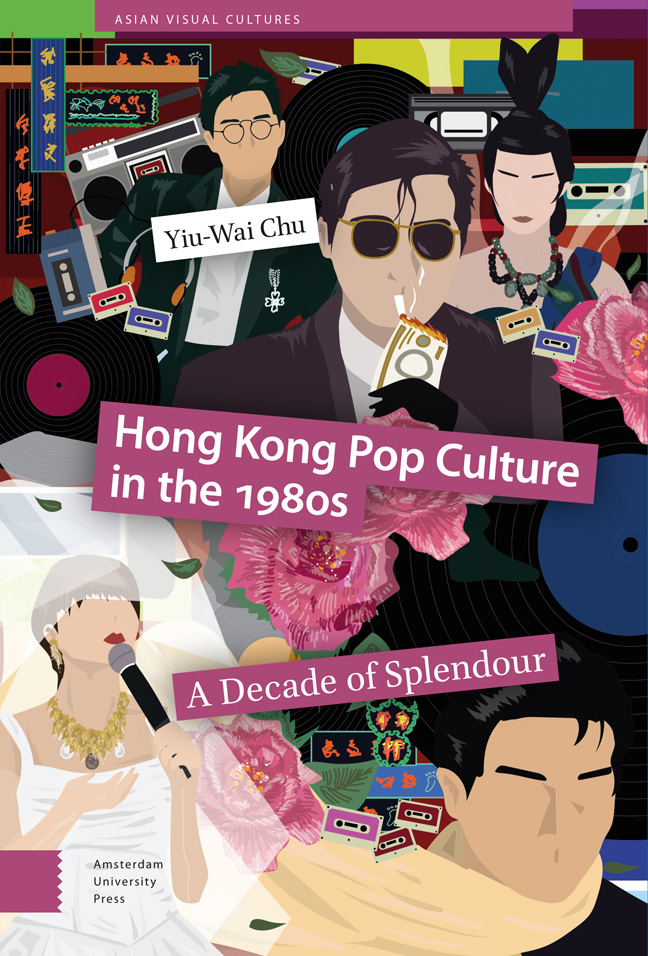Book contents
- Frontmatter
- Acknowledgments
- A Note on Romanization and Translation
- Contents
- Dedication
- Prologue: Horse Racing and Dancing as Usual
- Introduction
- 1 Televising Pop: New Stars and Renewed Sensibilities
- 2 Golden Days of the Silver Screen: Cinematic Imagination in a Not Yet Fallen City
- 3 The Sound of Chinese Cool: Do You See the City Sing?
- 4 The Importance of Being Chic: Fashion, Branding, and Multimedia Stardom
- 5 The Practice of Everynight Life: Disco as Another Kind of Dance
- 6 (Un)Covering Cosmopolitan Hybridity: Every Great City Deserves a City Magazine
- Epilogue: ‘We’ll Always Have Hong Kong’
- Select Bibliography
- Glossary
- Index
2 - Golden Days of the Silver Screen: Cinematic Imagination in a Not Yet Fallen City
Published online by Cambridge University Press: 20 February 2024
- Frontmatter
- Acknowledgments
- A Note on Romanization and Translation
- Contents
- Dedication
- Prologue: Horse Racing and Dancing as Usual
- Introduction
- 1 Televising Pop: New Stars and Renewed Sensibilities
- 2 Golden Days of the Silver Screen: Cinematic Imagination in a Not Yet Fallen City
- 3 The Sound of Chinese Cool: Do You See the City Sing?
- 4 The Importance of Being Chic: Fashion, Branding, and Multimedia Stardom
- 5 The Practice of Everynight Life: Disco as Another Kind of Dance
- 6 (Un)Covering Cosmopolitan Hybridity: Every Great City Deserves a City Magazine
- Epilogue: ‘We’ll Always Have Hong Kong’
- Select Bibliography
- Glossary
- Index
Summary
Why are we often nostalgic for the 1980s? It is because it was similar to our adolescence.
Abstract
This chapter deals with Hong Kong cinema by examining the evolution and transformation of the film industry in the 1980s, a decade in which Hong Kong cinema became a cult phenomenon hailed as the “Hollywood of the East”. While the early 1980s benefited from the rise of the New Wave directors who injected new vitality into the industry, Hong Kong cinema displayed, with the 1997 handover looming, a decadent glamor with unparalleled imagination throughout the 1980s. Movie fans saw the emergence of different film genres, styles and, arguably most importantly, creativity famously described by David Bordwell as “all too extravagant, too gratuitously wild.”
Keywords: The New Wave, Cinema City, D & B Films, satellite film companies, blockbusters
In the Prime of Youth
After the Television Broadcasts Limited (TVB)-inspired The House of 72 Tenants (1973), a remake of a 1963 film of the same title, unexpectedly grossed HK$5.6 million and broke the then box office record set by Bruce Lee's Enter the Dragon (1972), Cantonese cinema seemed to bounce back from rock bottom low in a market dominated by English and Mandarin films – there were no Cantonese film productions in Hong Kong in 1972. As this was the only Cantonese production out of the ninety-four Hong Kong films released in 1973, it was indeed a pleasant surprise for Cantonese pop culture. It also successfully brought Cantonese films back to Hong Kong cinema. In 1974, out of a total of 101 Hong Kong films, twenty-one were Cantonese productions. The highest-grossing films were Cantonese productions, including the monumental Games Gamblers Play (1974) by the Hui Brothers – Michael Hui and Sam Hui. Even with the success of some Cantonese films, ‘Hong Kong's film industry was still regarded as somewhat depressed’ in the mid-1970s, ‘particularly by young filmmakers who had just returned to the territory after graduating from film schools overseas’. Besides the Hui Brothers’ Cantonese comedies and kind of language-neutral wave of kung fu films triggered by Bruce Lee (his films were dubbed into Mandarin when they premiered in Hong Kong in the early 1970s), Hong Kong cinema had still yet to find new impetus in terms of talents and film genres. It was therefore believed that the Hong Kong film industry had reached a stage of shortage, and a new crop was yet to come.
- Type
- Chapter
- Information
- Hong Kong Pop Culture in the 1980sA Decade of Splendour, pp. 83 - 114Publisher: Amsterdam University PressPrint publication year: 2023



